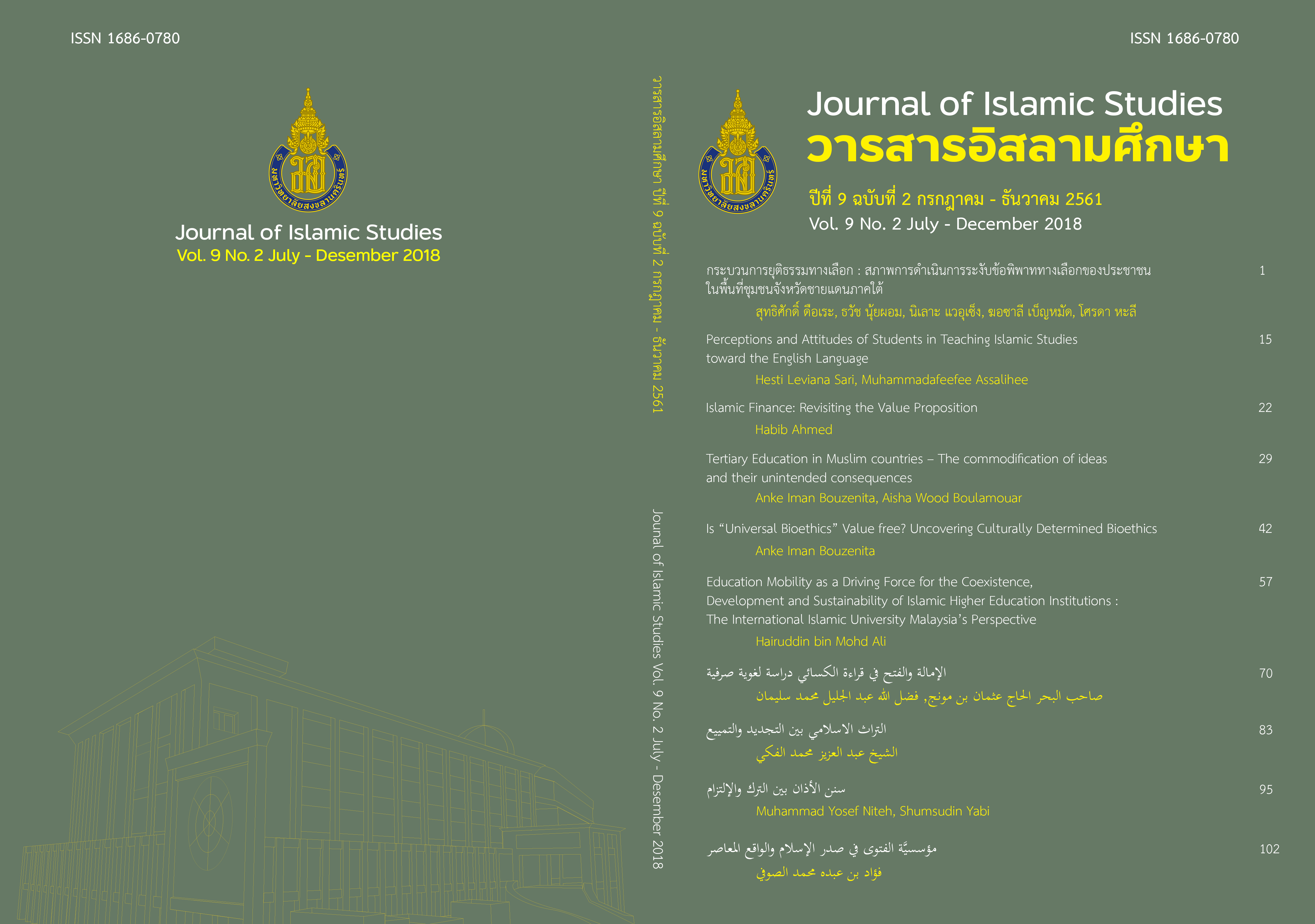Islamic Finance: Revisiting the Value Proposition
Keywords:
Maqasid al Shariah, Legal Compliance, Ethical and Social ValueAbstract
The pioneers of Islamic economics envisioned that an economy based on Islamic values and principles would strive to fulfill the goals of Shari’ah (maqasid al-Shari’ah) and fulfill the aim of Islamic law of promoting welfare or benefit (maslahah) of mankind and prevent harm (mafsadah). The practice of the Islamic finance, however, has been to become a ‘prohibition-driven industry’ focussing primarily on avoiding the prohibitions of riba and gharar. Ignoring the foundational values and focussing only on legal compliance makes the industry devoid of its essence and spirit. If the industry fails to promote the foundational values, it will fail to claim its uniqueness as being a positive ethical and social force in the economy.
References
Carroll, A. B. (1979) A Three-Dimensional Conceptual Model of Corporate Performance. Academy of Management Review, 4 (4), 497-505.
Economist. (2010, 24 June) Debt: Repent at Leisure, The Economist. Retrieved from https://www.economist.com/special-report/2010/06/24/repent-at-leisure
Sambidge, A. (2010, 5 August), “UAE bounced cheques rise in Q1 but value falls 25%. Arabian Business. Retrieved from https://www.arabianbusiness.com/uae-bounced-cheques-
rise-in-q1-but-value-falls-25--340165.html
Schwartz, M. S. & Carroll, A. B. (2003). Corporate Social Responsibility: A Three-Domain Approach. Business Ethics Quarterly, 13 (4), 503-30.
Taleb, N. N. & Spitzagel, M (2009, 13 July). Time to tackle the real evil: too much debt. Financial Times. Retrieved from https://www.ft.com/content/4e02aeba-6fd8-11de-b835-00144feabdc0
Walter, M. (2010, 14 August). Survey claims 85% of UAE expats in deep debt. Gulf News. https://gulfnews.com/business/banking/survey-claims-85-of-uae-expats-in-deep-debt-1.667902
White, A. (2010, 8 August). Consumer Debt in GCC hits $139bn. Arabian Business. Retrieved from https://www.arabianbusiness.com/consumer-debt-in-gcc-hits-139bn-340074.html
World Bank (2014). World Financial Development Report 2014. Financial Inclusion. Washington, D.C.: World Bank Group.
Downloads
Published
How to Cite
Issue
Section
License
All articles Published in The Journal of Islamic Studies are author’s opinions, and not the responsibility of the Faculty of Islamic Sciences nor the editorial board. However any citation should be referred to the journal.


